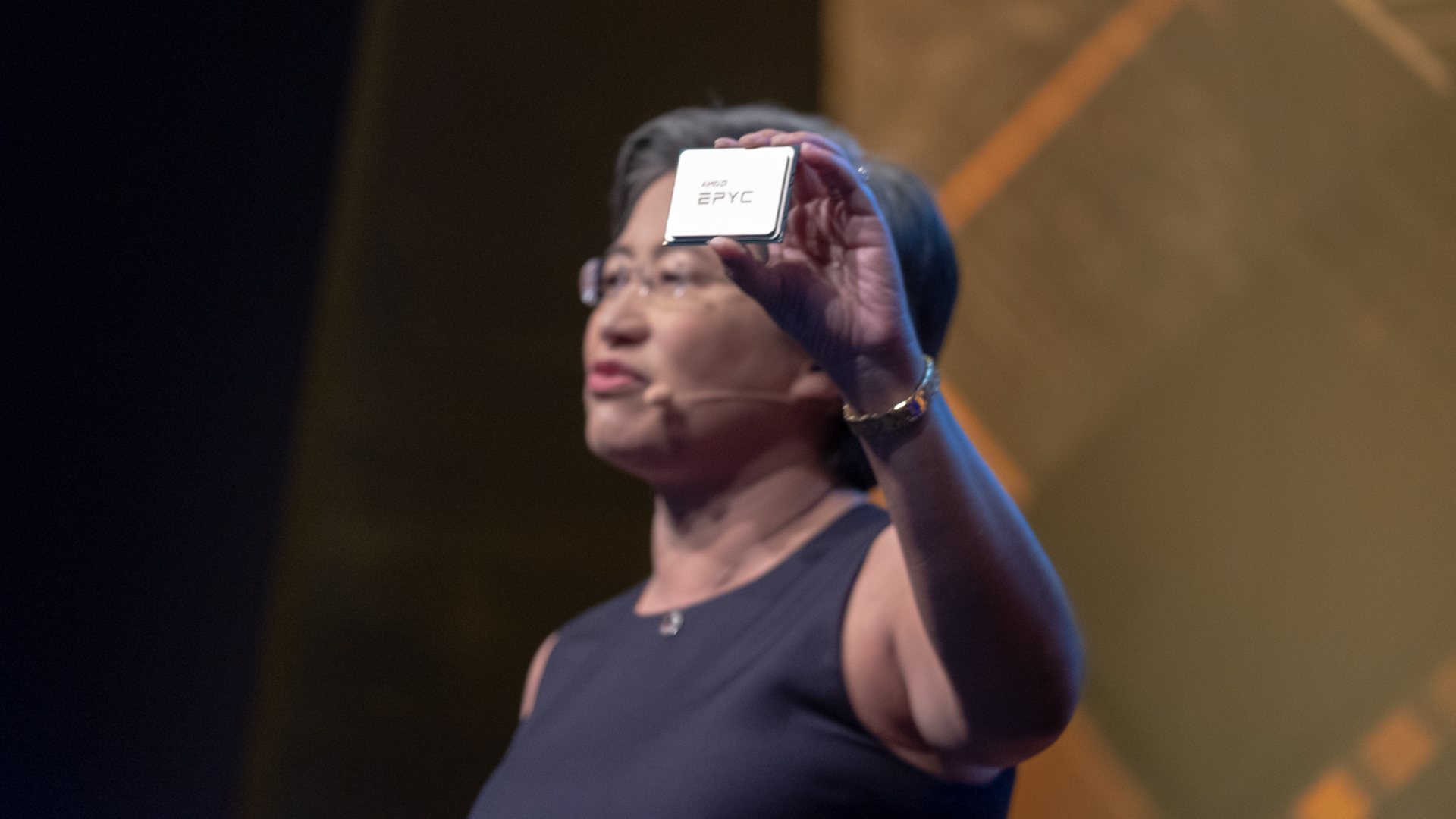AMD CEO Lisa Su warns the chip shortage won't end any time soon
It may last until 2022

AMD CEO Lisa Su has revealed that she believes the global chip shortage could be nearing an end… but things won’t get better until the second half of 2022.
This will likely come as a blow to many people who were hoping it would end sooner. Because manufacturers have been struggling to get chips for their products, it meant that gadgets like consoles, graphics cards and electric cars have all become very difficult to buy for the past year or so.
While we’ve heard from several industry voices about their predictions about when the global chip shortage will end, Dr Su’s comments are particularly noteworthy as she’s one of the most senior people to talk about the chip shortage.
- Check out all the best graphics cards
- And these are the best PC games
- These are the best laptops
As CEO of AMD, a company whose processor and graphics card products rely on chips from third-party foundries, Dr Su is extremely well-placed to comment on the trajectory of the chip shortage.
So, when she talked about it at the recent Code Conference in California, and how the first half of 2022 will be “likely tight,” our hopes were dashed that the chip shortage will be ending anytime soon, and that we’d soon be able to easily pick up a PS5 or a new AMD or Nvidia GPU.
Late 2022?
According to CNBC’s report, Dr Su commented that chip makers were looking to increase their manufacturing capacity, but that it “It might take, you know, 18 to 24 months to put on a new plant, and in some cases even longer than that.”
The global Covid-19 pandemic is one of the prime reasons for the chip shortage. Not only did it reduce the capacity of the chip makers by either closing foundries during lockdowns, or limiting staff levels due to illness, but it also saw a huge increase in consumer demand as people looked to buy new equipment for themselves and their families as they found themselves working and studying from home.
Get daily insight, inspiration and deals in your inbox
Sign up for breaking news, reviews, opinion, top tech deals, and more.
Dr Su commented that “the pandemic has just taken demand to a new level,” and AMD’s phenomenal financial performance is clear evidence of that. This demand, coupled with major new console releases from both Sony and Microsoft, plus a boom in cryptocurrency mining that requires GPUs, has put immense pressure on stock levels.
If Dr Su is correct and the chip makers won’t be able to catch up with pent-up demand until the extra manufacturing plants are opened, then the rest of 2021 and early 2022 could still be a bad time to try and buy some of these products.
Analysis: What can we do?

The news that the chip shortage may not be over until at least another year is going to be extremely disheartening for many people, but what can we do about it?
The good news is that there is some stock available, you just need to know when it’s landing. We also have dedicated buying advice for the following GPUs:
- Where to buy the Nvidia RTX 3090
- Where to buy the Nvidia RTX 3080 Ti
- Where to buy the Nvidia RTX 3080
- Where to buy the Nvidia RTX 3070 Ti
- Where to buy the Nvidia RTX 3070
- Where to buy the Nvidia RTX 3060 Ti
- Where to buy the Nvidia RTX 3060
- Where to buy the AMD Radeon RX 6900 XT
- Where to buy the AMD Radeon RX 6700 XT
- Where to buy the AMD Radeon RX 6600 XT
These should hopefully help you find stock.
Otherwise, it’s best to try and make do as best you can with your current hardware. It’s not ideal, but by prolonging the lifespan of your current hardware, you’re saving money, and when the chip shortage does end, you may even be able to buy more powerful devices which have been released in the meantime.
If you’re still rocking an old GPU, technology like Nvidia DLSS and AMD FidelityFX Super Resolution help modern games run better on older hardware. There are also streaming services like Nvidia GeForce Now that let you play games on old and underpowered hardware – and the results are pretty good these days.
As for that aging laptop or PC, installing a lightweight Linux distro can keep it running for longer, while offering you most of the features you rely on.
Hopefully, these will only be temporary measures, and while this is just based on Dr Su’s predictions, we’re inclined to believe her.
- These are the best gaming laptops you can buy right now

Matt is TechRadar's Managing Editor for Core Tech, looking after computing and mobile technology. Having written for a number of publications such as PC Plus, PC Format, T3 and Linux Format, there's no aspect of technology that Matt isn't passionate about, especially computing and PC gaming. He’s personally reviewed and used most of the laptops in our best laptops guide - and since joining TechRadar in 2014, he's reviewed over 250 laptops and computing accessories personally.